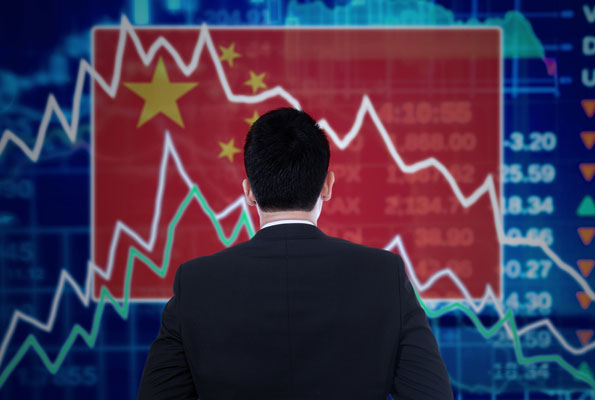China started its ‘zero COVID policy’ with the intention to curb the spread of COVID-19 with widespread lockdowns and mass quarantines.
But in reality, it had slowed down the economic growth of the country.
According to the National Bureau of Statistics in China, the country’s gross domestic product declined by 2.6%, down from the January-March period’s 1.4% data.
During an interaction with BBC, Tommy Wu, lead economist at Oxford Economics, said, “Second quarter GDP growth was the worst outcome since the start of the pandemic, as lockdowns, notably in Shanghai, severely impacted activity at the start of the quarter.”
China’s growth fell short of expectations and grew by just 0.4%, compared to the earlier quarter’s 4.8%.
It is the lowest growth rate since China’s economy shrank by 6.8% in the first quarter of 2020 after COVID-19, which first surfaced in Wuhan and later spread to the world.
Anti-virus controls shut down Shanghai, the site of the world’s busiest port, and other industrial centers starting in late March, fueling concerns that global trade and manufacturing might be disrupted.
Millions of families were confined to their homes, depressing consumer spending. Factories and offices were allowed to start reopening in May, but economists say it will be weeks or months before the activity is back to normal.
Economists and business groups say China’s trading partners will feel the impact of shipping disruptions over the next few months.
“The resurgence of the pandemic was effectively contained. The national economy registered a stable recovery,” the statistics bureau said in a statement.
Many analysts do not expect a quick economic recovery for China as the government continues with its strict zero-COVID approach to slowing the spread of the coronavirus.
China rebounded quickly from the coronavirus pandemic in 2020, but activity weakened as the government tightened controls on the use of debt by its vast real estate industry, which supports millions of jobs.
This resulted in a sharp decline in the country’s once-booming property market and the growth slid due to a slump in construction and housing sales.
GDP measures the size of an economy.
Gauging its expansion or contraction is one of the most important ways of measuring how well or badly an economy is performing and is closely watched by economists and central banks.
It helps businesses to judge when to expand and recruit more workers or invest less and cut their workforces. Governments also use it to guide decisions on everything from taxes to spending.
It is a key gauge, along with inflation, for central banks when considering whether or not to raise or lower interest rates.



